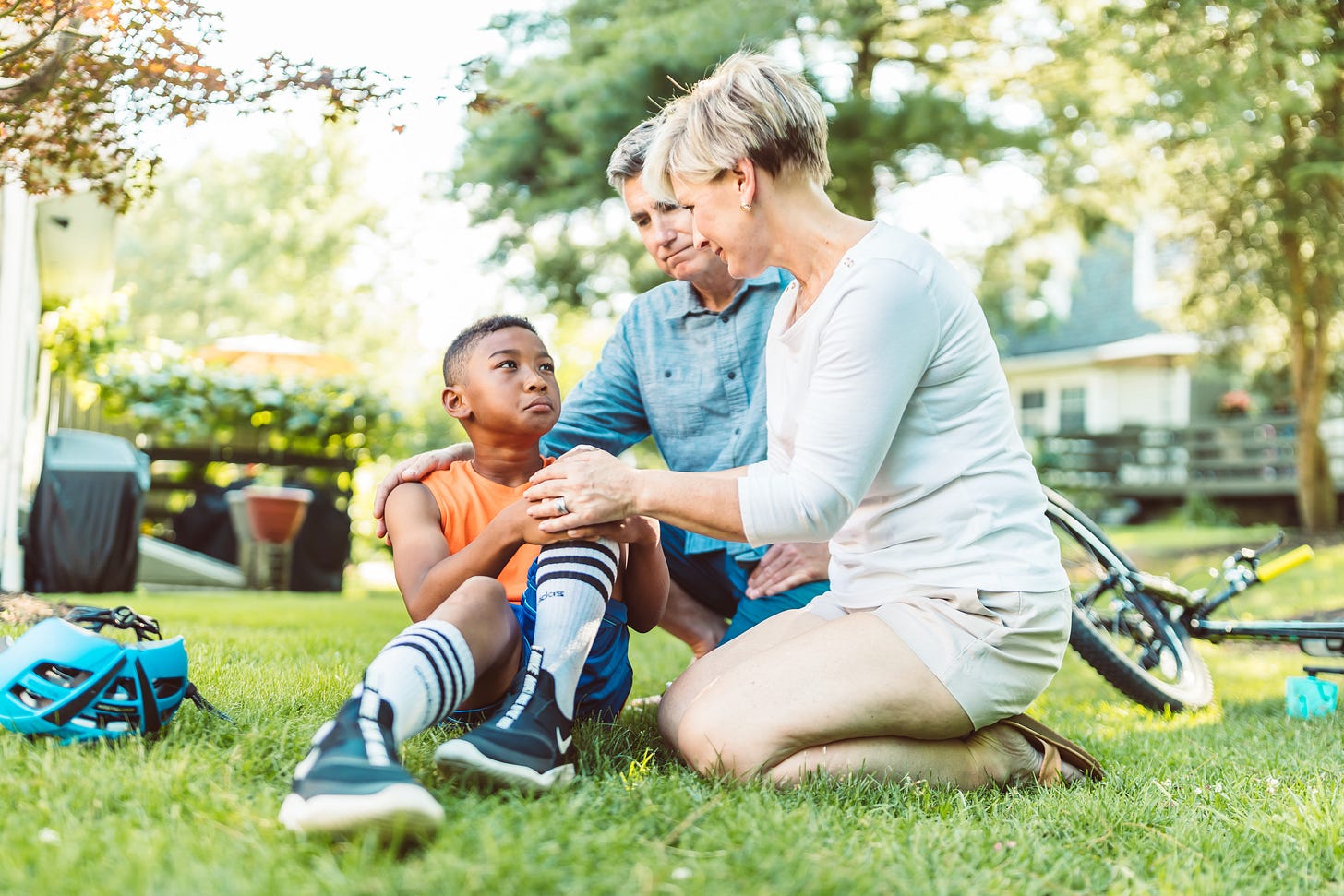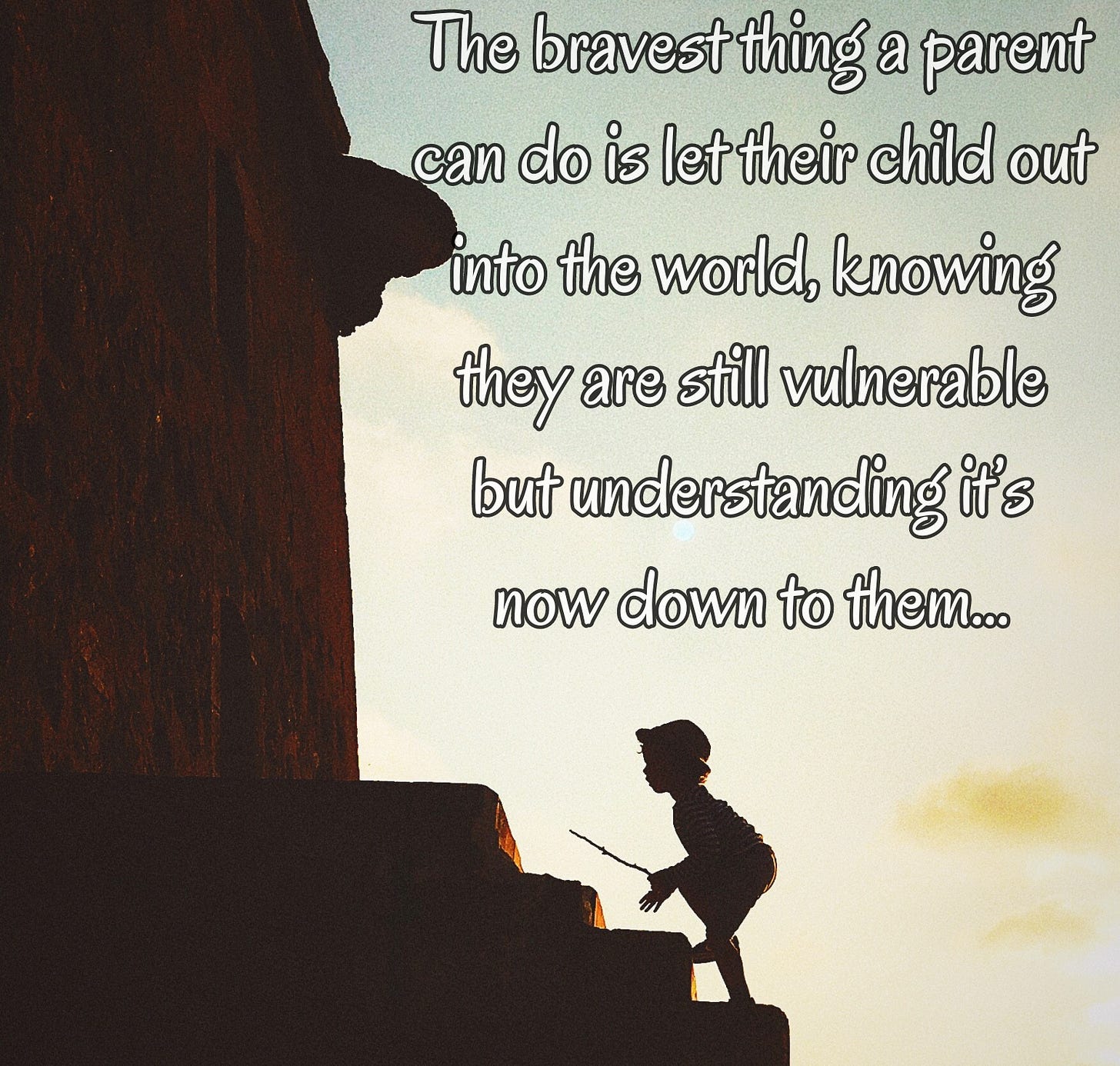Helicopter parents or surveillance drones?
The link between overprotective parenting and the mental health crisis
“Hard times create strong men, strong men create good times, good times create weak men, and weak men create hard times”
― G. Michael Hopf, Those who remain
I’m sure we’ve all heard it from the older generation; that our generation “has it easy” or is even “too soft.” My grandparents certainly felt that way about my parents, and my parents likely think that about me and my peers. But things have escalated substantially. Today, the idea of children roaming the neighbourhood unsupervised until dinner seems reckless, and latchkey living is frowned upon. As parents become increasingly over-protective, we’re also seeing an escalating youth mental health crisis. Is that a coincidence?
The effect of “safetyism”
Safetyism is a mindset that prioritises protecting individuals, physically and emotionally, to the extent that it can stifle exposure to physical discomfort and challenging ideas. - Jonathan Haidt, The Coddling of the American Mind
The term “helicopter parent” has been around since the 1960s, and describes an overbearing, neurotic parent who, usually with good intentions, inadvertently prevents children from solving their own problems or making their own mistakes: a fundamental stage of development. Today, the problem is that the helicopters have evolved into surveillance drones, droning on about safety, analysing and organising every aspect of a child’s life. Even though it’s difficult to challenge the idea of protecting children without sounding harsh and unfeeling, good intentions do not always lead to positive outcomes.
Independence
“You don't remember the times your dad held your handlebars. You remember the day he let go.” - Lenore Skenazy, Free-range kids
Every generation, with the best intent, has more rules than the last, which means less unsupervised play, exploration and conflict resolution. This ends up with children being overly reliant on adults to keep them entertained, safe and to resolve their disputes. Yet autonomy, to act in their own interest and make their own decisions, is a leading predictor of long-term life satisfaction alongside having skills and competence to feel sufficiently independent in your pursuits. Without the opportunity to learn how to be self-directed, children are less likely to develop either of these fundamentals, which can significantly increase their chance of anxiety and depression. This includes the freedom to realise what’s dangerous, what hurts and therefore, the recognition that they can deal with adversity.
How to nurture children’s independence:
Let them out of sight to explore and roam neighbourhoods, run errands and get back and forth to school. You can always track their location and provide an old phone in case of emergency.
Give children the least amount of help necessary to complete tasks whether it’s getting dressed, tying their shoes or making their own lunch. It might be a pain for you in the short-term, but beneficial for your child in the long-term.
Increase the amount of unstructured, unsupervised, free time your children have. Let them make mistakes, hurt themselves, have disagreements, and figure things out on their own.
Allow them to be bored and learn how to entertain themselves. Not every minute needs to be organised, children are happy building pillow forts.
Encourage children to solve their own disputes, rather than running to an adult. It develops a key skill in conflict resolution whilst reducing the incentive for children to actively look for fault in others.
Emotional resilience
“A child who can fend for themself is a lot safer than one forever coddled because the coddled child will not have parents around all the time, even though they act as if they will.” - Lenore Skenazy, Free-range kids
Society has made spectacular moves to safeguard children from genuine psychological abuse, but now, children are emotionally rewarded for being upset by trivial incidents, creating a victim mentality that blames others first before analysing the situation as a whole. As exposure to anything hurtful diminishes in an increasingly safe world, mental health has also declined. Have recent generations really benefitted from growing censorship, or does it just delay life’s inevitable malevolence whilst robbing them of their resilience?
Constantly worrying children about upsetting others can also increase self-censorship to a degree where students become afraid to discuss certain topics or challenge certain ideas. It is more beneficial to demonstrate how to handle a range of opinions and the subsequent benefits of healthy disagreement. This strengthens our own thinking, avoids confirmation bias, and helps us find out what we actually think.
How to support the development of emotional resilience in children:
Refrain from automatically taking your child’s side, and instead listen to criticisms without being overly defensive. Outside observers may have valuable insights.
Avoid praising indiscriminately. Keep expectations high and praise for specific, genuinely impressive achievements and efforts.
Teach them how writing can effectively analyse a situation. Rate the distress out of 100, write what happened; what your automatic reaction was, and look at the evidence for and against whether it was appropriate. Use this to plan for similar situations in the future.
Encourage the exploration of opinions different to their own. Humans are socially tribal and prone to confirming their own biases. Assume the person you're talking to knows something you don’t.
Demonstrate how to handle differing opinions and disagree effectively without being critical. Opinions are not theirs, they just adopted them temporarily.
Develop their ability to control their emotional reactions and understand that they can’t always trust their initial feelings. They can learn to question their interpretations of events and analyse whether it is correct or beneficial.
Useful links
Book: Jonathan Haidt and the coddling of the American mind.
Websites: Let grow. How to create independent children
The Epidemic of Discipline Deficit Disorder - How a lack of self-restraint leads to self-destruction
New academic year, same old bullies - The psychological warfare of school yard tyrants
Worrying about worry - The science behind anxiety and its effect on children






